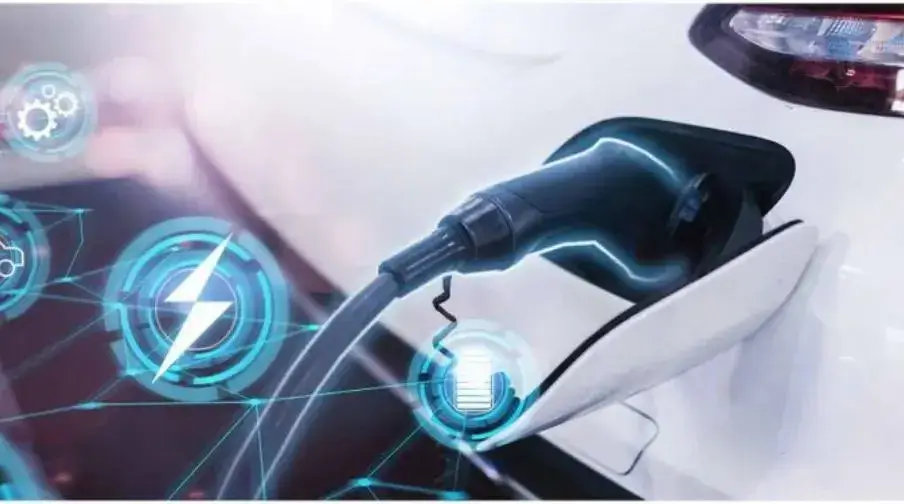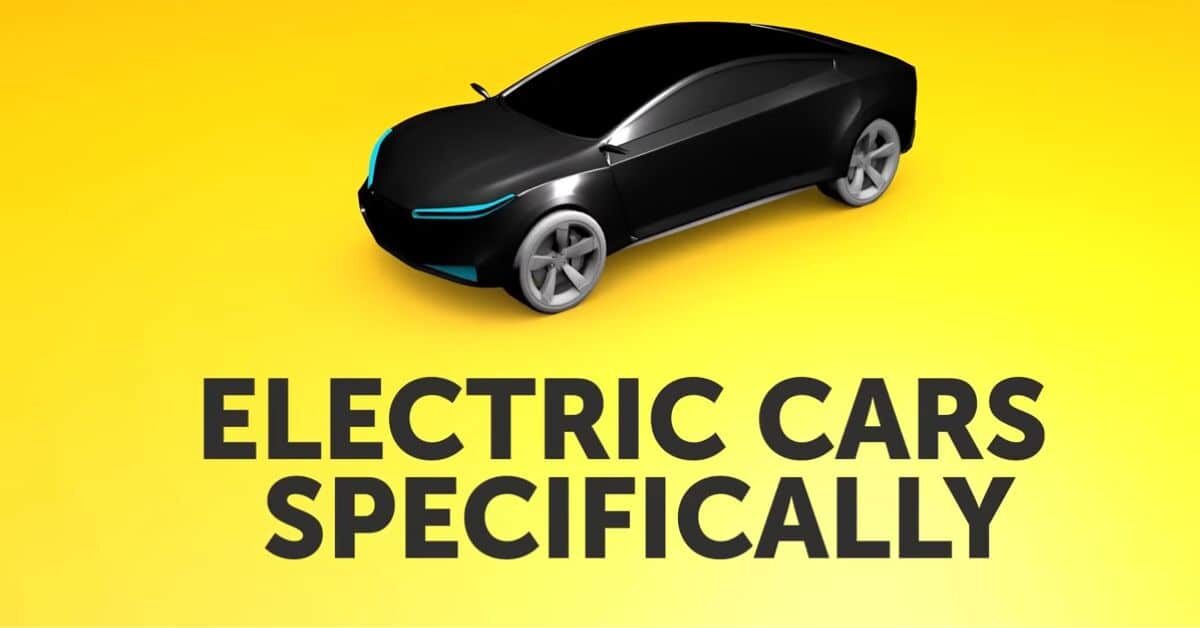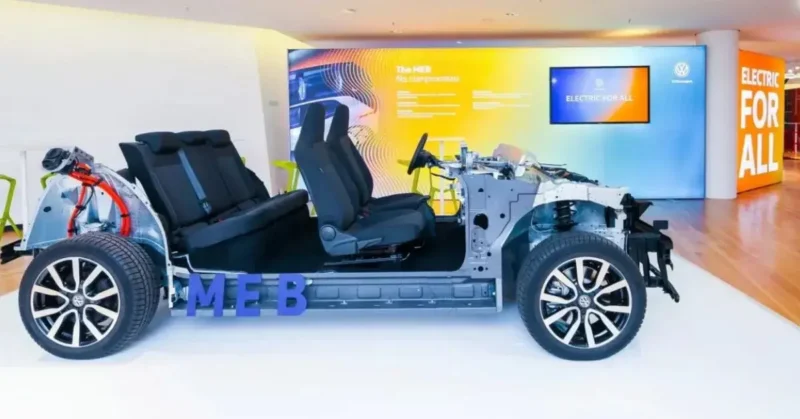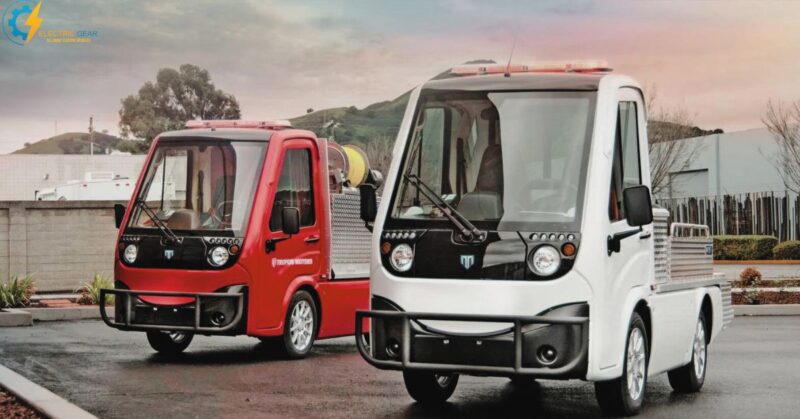Consumers have been increasingly interested in electric vehicles over the last several years due to their growing availability and environmental benefits. They provide an alternative to conventional vehicles by using electricity as their power source rather than gasoline or diesel.
In this piece, we’ll review essential information and facts about electric cars that every motorist should know.
How do electric cars work?
A car that runs on electricity is like a car that runs on gas. EV drivers may notice some differences between their cars and cars that run on gas, such as:
Quiet operation
People walking by are often surprised and say they didn’t hear an EV coming, and first-time owners say they aren’t always sure if their car is on.
Sluggish acceleration
Some hybrid electric vehicles are made to move slowly and coast, which takes some getting used to. But plug-in electric cars like the Tesla or Porsche are very fast.
Marked deceleration
EVs usually use regenerative braking to charge up their batteries. If you let off the accelerator, the car might slow down more than a normal car would when you do this.
Extra trunk or “frunk” space
Pure EVs don’t have a combustible engine. So, the front hood is empty and is used as a front trunk in many models.
About Electric Vehicle Technology
In recent years, EV technology has been rapidly easing, leading to considerable performance, range, and affordability improvements. Some of the key aspects of electric vehicle technology include:
Battery technology
One of the most critical components of electric vehicles is the battery. Advancements in battery technology have led to increased energy density, longer ranges, faster charging times, and improved safety.
Electric motors
Electric motors are exceedingly efficient and provide instant torque, thus making them well-suited for vehicle use. Improvements in motor design and control systems have increased performance and efficiency.
Charging infrastructure
The need for charging infrastructure increases with the increase of EVs on the road. Governments and private companies have invested in developing fast charging stations that can recharge an EV in less than 30 minutes.
Vehicle-to-grid technology
Some electric vehicles are equipped with vehicle-to-grid technology, allowing them to send energy back to the grid during high demand. The technology helps to stabilize the grid and reduce the need for fossil fuel power plants.
Autonomous driving
Many modern electric cars have sensors and computers capable of autonomous driving. This innovation might save traffic and greenhouse gas emissions while making driving safer and more efficient.
Environmental benefits of electric cars
The environmental friendliness of electric vehicles is one of their primary benefits. They are substantially less polluting than conventional vehicles since they produce no greenhouse emissions.

Cleaner air benefits everyone’s health, but it’s essential for those with respiratory and cardiovascular conditions. Electric vehicles also contribute less to urban noise levels than gasoline-powered automobiles.
As compared to conventional vehicles, EVs are significantly quieter. It makes a lot of noise, but it is manageable. The passing electric car would not bother you if you were speaking to someone close by.
Cost-Effectiveness of electric cars
Electric vehicles have a higher purchase price but lower operating costs than conventional ones. Due to their lower fuel costs and lack of moving components, electric vehicles are easier to maintain.
Saving money on gasoline by switching to an electric vehicle is possible due to the substantial price difference between the two fuels. Tax credits and refunds are only two ways some governments help make electric vehicles more affordable for consumers.
Performance of electric cars
Contrary to popular belief, electric cars offer excellent performance, with instant torque and smooth acceleration. They can accelerate quickly and reach high speeds, making them ideal for highway driving.
Range and charging of electric cars
The small range that electric automobiles can go is a significant problem. Depending on the make and model, the average range for an electric car is between 100 and 300 miles. Because of this, electric vehicles may not be the best option for folks who often drive long distances or on extended road trips.
Yet battery technology developments are steadily expanding electric vehicles’ driving range. Not as many petrol stations are set up to accommodate electric vehicles’ unique charging needs. Companies are investing in increasing the number of charging stations available to drivers of electric cars.

Can Charge Up Your Entire House
Electric cars could be thought of as batteries that move. With the right technology, you could use the power in a car battery to power your own home or help keep the power grid in balance at certain times of the day. As Nissan’s LEAF-to-home technology showed in 2013, it is also possible to use a battery pack to power an outdoor concert or even Christmas lights.
Electric Vehicles Are A Faster Mode Of Transport
Because of the size of the battery, an electric car is 10 to 25% denser than a gas-powered car. This is good because an electric car needs more time to stop when it brakes, which makes the passengers much safer and more secure in case of an accident.
One amazing thing about electric cars is that they go faster than gasoline-powered cars. To go from not moving at all to moving at full speed right away, the electric engine generates all of its possible torque at once.
Additionally, electric cars are much quieter than traditional cars, which can offer a more comfortable driving experience.
Government Incentives for Electric Cars
Incentives have been introduced by governments all over the globe to promote the usage of electric vehicles as a means of lowering greenhouse gas emissions and air pollution. Common incentives include the following:
Tax credits
Governments may provide tax rebates to those who purchase electric vehicles. Depending on the nation and the kind of car, these credits might vary from a few hundred to several thousand dollars.
Rebates
Several governments offer financial incentives to those who purchase electric vehicles. After purchasing, the buyer is eligible for some rebates anywhere from a few hundred to several thousand dollars.
Grants
Governments may offer assistance in developing and manufacturing electric vehicles and installing charging infrastructure.
Reduced or waived registration fees
In some countries, electric car owners may be eligible for reduced or waived registration fees, saving them hundreds of dollars over the vehicle’s life.
Access to carpool lanes
In some areas, electric car owners may be allowed to use carpool lanes even if driving alone, which can save their time and reduce their commute.
Free Parking
Some cities offer free or discounted parking to EV owners to encourage their use.
Low or no emissions zones
Some cities have established low or no-emissions zones where only electric vehicles can enter. It helps reduce air pollution in highly populated areas.
What are The Benefits of Electric Vehicles
Are you considering making the switch to an electric vehicle (EV)? If so, you’re not alone. As awareness grows about the negative impacts of fossil fuels on the environment and public health, more and more people are looking for alternative modes of transportation.
Well, EVs offer a clean and efficient alternative to traditional gasoline-powered vehicles and come with a host of benefits for both the individual driver and society as a whole.
Economic Benefits of Electric Cars
EVs can save you a ton of money on fuel costs. Because EVs run on electricity rather than gasoline, they have much lower operating costs. It’s estimated that driving an EV can cost up to 75% less per mile compared to a gas-powered car.
(This is a significant difference!) And, with gas prices constantly fluctuating, you never know how much you’ll end up paying at the pump.
But it’s not just fuel costs that can be lower with an EV. Maintenance costs can also be significantly lower. Because EVs have fewer moving parts and less complexity than gasoline-powered vehicles, they generally require less maintenance. It can translate to fewer trips to the mechanic and more money in your pocket.
Health Benefits of Electric Cars
EVs produce zero emissions while driving, which can significantly reduce the exposure of drivers and passengers to harmful pollutants.
As mentioned earlier, gasoline-powered vehicles emit various harmful pollutants, such as nitrogen oxides, carbon dioxide some other particulate matter, which can negatively affect respiratory and cardiovascular health.
By switching to an EV, you can significantly reduce exposure to these pollutants and improve your overall health.
But it’s not just drivers and passengers who can benefit from the reduced emissions of EVs. The entire community can also see improved health as a result of fewer pollutants in the air.
According to the World Health Organization, air pollution is a significant contributor to respiratory and cardiovascular diseases and other health problems. By switching to an EV, you can reduce air pollution in your community and improve the overall health of those around you.
Conclusion
Hybrid electric vehicles that can be plugged in (PHEVs) Similar to HEVs, but with a bigger battery that can be charged from an external power source, are PHEVs, or plug-in hybrid electric vehicles.
Before switching to a gasoline engine, PHEVs may be driven solely on electric power for short distances. Plug-in hybrid electric vehicles (PHEVs) combine an electric vehicle’s convenience with a gasoline vehicle’s versatility.
Frequently Asked Questions
How will the economy be impacted by electric cars?
EVs help the state’s economy because they lower the price of gas and make us less reliant on oil from other countries and more on electricity made here at home. When people save money on fuel, they have more money to spend. Most of it will be spent in the state, which creates more jobs.
Does every electric motor have the same motor?
No. But the differences don’t matter that much.
All electric motors depend on the way magnetic and electric currents work together. Compared to an engine with moving parts that burn fuel, an electric motor is much simpler and smaller. The only one of its two necessary parts that moves is the stator.
Why are cooling systems necessary for EV battery packs?
In an EV, the temperature of the battery pack needs to be kept in check for several reasons that are all related to each other. Heating can be helpful, but cooling is much more important. The safety, usability, ability to store, and speed of charging of a lithium-ion battery pack all depend on the temperature, so it’s best to keep the cells working in a fairly narrow range between 20 and 40 degrees Celsius.
Do EVs need maintenance?
Electric vehicles (EVs) don’t need as much maintenance as cars that run on gasoline or diesel. But you will still need to fix things like the tires and windshield wipers and check on them regularly. The friction brake pads on an EV will last for a long time, but the radiators that hold the cooling fluid will need to be replaced every so often.

Imran is an experienced content writer who crafts engaging and informative articles for a variety of industries. With a keen eye for detail and a passion for storytelling, Imran delivers high-quality content that resonates with readers. Whether he’s writing blog posts, social media content, or website copy, Imran is committed to delivering compelling content that drives results.







